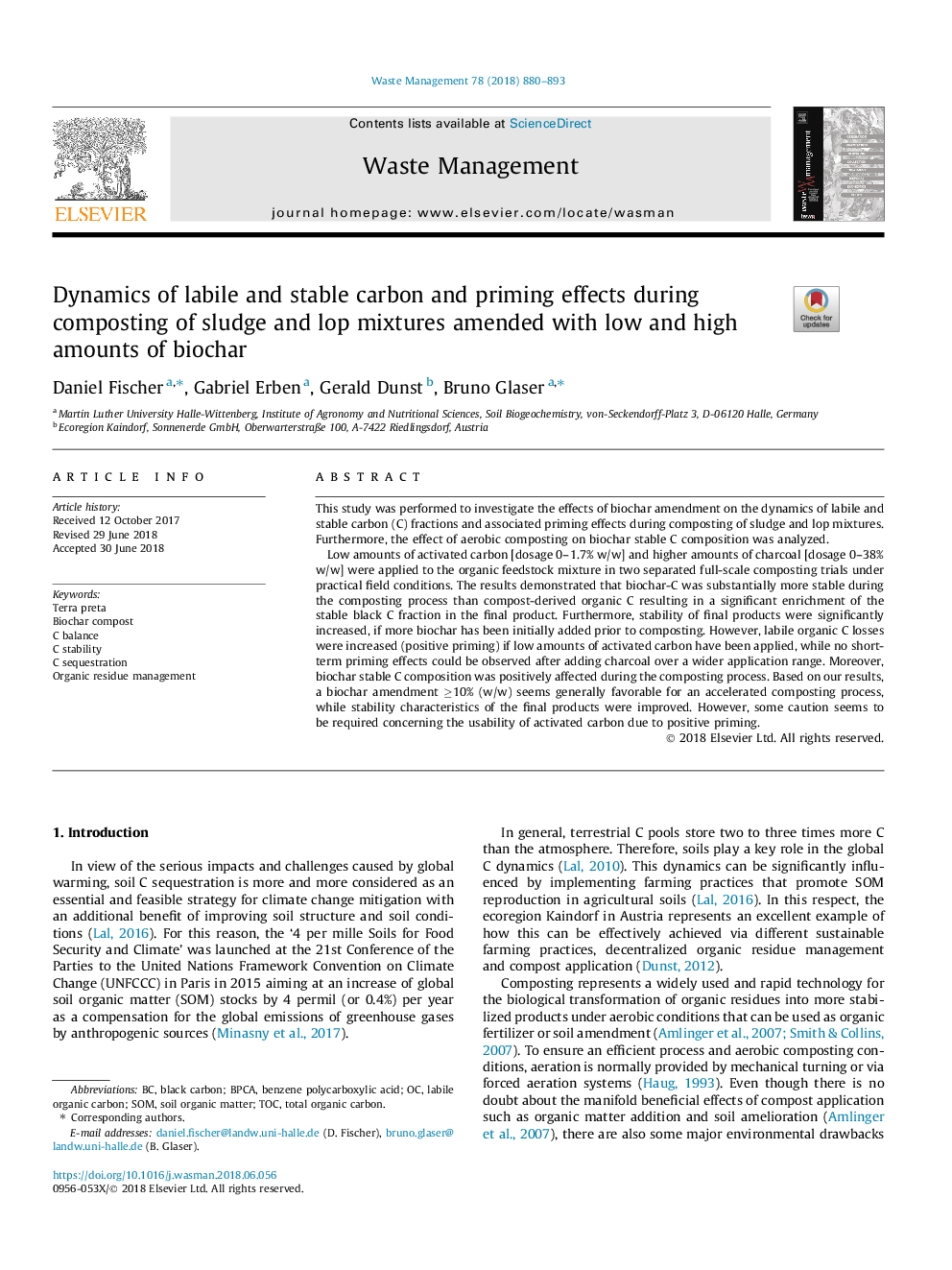| Article ID | Journal | Published Year | Pages | File Type |
|---|---|---|---|---|
| 8869482 | Waste Management | 2018 | 14 Pages |
Abstract
Low amounts of activated carbon [dosage 0-1.7% w/w] and higher amounts of charcoal [dosage 0-38% w/w] were applied to the organic feedstock mixture in two separated full-scale composting trials under practical field conditions. The results demonstrated that biochar-C was substantially more stable during the composting process than compost-derived organic C resulting in a significant enrichment of the stable black C fraction in the final product. Furthermore, stability of final products were significantly increased, if more biochar has been initially added prior to composting. However, labile organic C losses were increased (positive priming) if low amounts of activated carbon have been applied, while no short-term priming effects could be observed after adding charcoal over a wider application range. Moreover, biochar stable C composition was positively affected during the composting process. Based on our results, a biochar amendment â¥10% (w/w) seems generally favorable for an accelerated composting process, while stability characteristics of the final products were improved. However, some caution seems to be required concerning the usability of activated carbon due to positive priming.
Keywords
Related Topics
Physical Sciences and Engineering
Earth and Planetary Sciences
Geotechnical Engineering and Engineering Geology
Authors
Daniel Fischer, Gabriel Erben, Gerald Dunst, Bruno Glaser,
